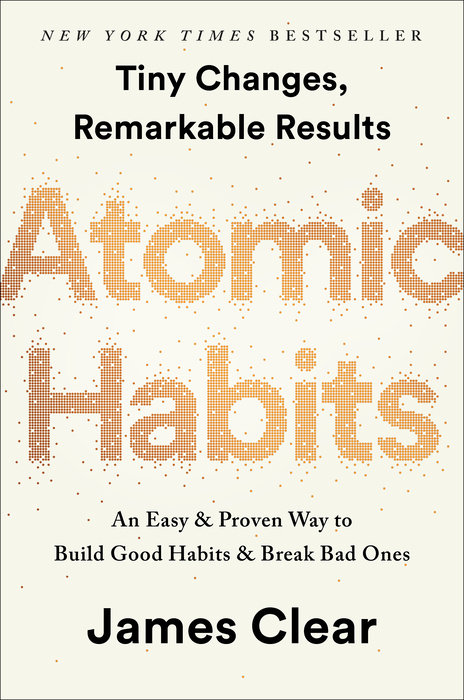When I spoke to the North Suburban Mennonite Church earlier this summer, I joked that I had been tempted to shared a list of 700 ways for living rightly on God’s earth.
Surprisingly enough, several members said they actually wanted such detailed guidance. So I promised to gather my thoughts and advice and share them. With this post I begin to fulfill that promise to a wonderful group of people.
I am dividing my list of suggestions into three areas with a separate post for each. This first epic post is about aligning our everyday habits of living out our faith as it relates to God’s earth. In the second I’ll address how you and I can act for God’s earth beyond our families at the larger scale of our communities, nations, and world.
The third post may surprise you. Its focus will be growing our hearts and minds in relation to God and Creation. I fundamentally believe that our ability to be a good shepherd of God’s earth is shaped in large part by the state of our hearts and the perspective of our minds.
One of the challenges to living out God’s ways in any dimension of our lives is our tendency to allow energetic commmitment to turn into perfectionistic zeal. The reality, however, is that we and everyone else around us will fall short of holiness. What’s more, navigating the complex ways we interact with God’s earth every day in a complex society makes pure living as it relates to God’s earth especially hard to do.
Striving to live rightly with God’s earth will put you and I in that paradoxical space where grace, faith, an understanding of the tragic fallibility of people, and a fierce hunger for holiness and God’s kingdom all come together. We somehow need to be tenacious and committed without becoming humorless, judgmental, puritanical zealots who put our attention to God’s earth above all other Christians values. We must give ourselves and others room to get better over time and make mistakes.
This is not easy. We will experience a rollercoaster of emotions in that paradoxical space. We will need God’s help to live out God’s ways with glad and sincere hearts.
WAYS OF LIVING
In Atomic Habits, James Clear writes: “Your identity emerges out of your habits. Every action is a vote for the type of person you wish to become.”
The fact that you are reading this indicates that you and your family want to be people who preserve, defend, and renew God’s Creation as part of a whole Christian faith. That means creating habits. Habits are intentions translated into consistent actions.
From my experience, changing habits takes an initial investment of energy, new thinking, and change. As we know from physics, it takes energy to move a body out of a state of inertia. The good news, however, is that once new habits are in place, they will become, well, habits and have an inertia of their own. They will become automatic. Once they are automatic, you can free yourself up to be involved in the protection and renewal of God’s earth at a larger scale in a focused way. I would encourage you to read Atomic Habits to gain insights into practical ways you can build positve habits of any kind.
Your changes will not go unnoticed. You will stand out. The larger culture tends to praise us for changed behavior that fits what society appreciates, like fitness and health. But changing one’s life in a direction that challenges society because it honors God can lead to pushback. But that shouldn’t surprise us. What might surprise you is how putting a whole faith into action and facing challenges related to those actions can grow your trust and faith. You’ll also find that once you can create positive habits in one area of your life you’ll be able do so in other areas as well.
Choose Grace-Filled Food
When you begin to think about the whole faith habits you want to build, start with food.
Our food choices are the single most important way we influence the condition of God’s earth. Three times a day (or more, of course, if you are like me or a hobbit), seven days a week we choose food to eat. That food has come from people using God’s earth. Our food choices make us part of either good systems of using God’s earth or ones that dishonor God. And oftentimes, the systems are somewhere in between.
As Wendell Berry wrote, “Eating is an agricultural act.” So choose, as best you can, to buy food that came from farms where the fruits of the spirit guided how the land and animals of that farm were treated. Choose to be part of agriculture that fits with the values of God’s Kingdom.

In Good Eating Stephen Webb encourages Christians to consider if there is grace in the food we say grace over. Make it your habit to seek out grace-filled food. (Painting by Norman Rockwell – Saying Grace)
This is not easy. The following are some tips and ideas.
Eat whole foods as much as possible: Michael Pollan’s book In Defense of Food does a good job of laying out the value of eating foods that are actually food, not processed food-like substances.
Avoid meat from factory farms and fish from fish farms: Factory farms (otherwise known as confined animal feeding operations) are not built on the fruits of the spirit. You will not find love, joy, peace, forbearance, kindness, goodness, faithfulness, gentleness and self-control in those places. Factory farms are also awful to neighbors living nearby.
Unfortunately, the vast majority of meat, eggs, and dairy you’ll find in grocery stores and restaurants come from factory farms. These factory farms can be buildings where the animals spend their whole lives or feedlots where cattle spend some of their lives. This means we need to do extra work to find ethically raised animal products.
Look for certifications that give you extra assurance. This article introduces you to certification options and their relative strengths. Also look to buy from local livestock farmers who can tell you exactly how they raise their animals.
Be thoughtful, too, in your fish purchases. Do not buy farmed fish. Buy sustainably raised fish. (I cannot help but be increasingly alarmed, by the way, by the prospect of fish increasingly absorbing plastic from the oceans.)
Seek out plant foods grown with fruits of the spirit: Consider carefully where your other food, especially the food you eat the most of, comes from as well. Annual crops like wheat, corn, and soy beans, which dominate our agricultural landscape, are often grown in ways that, again, are at complete odds with the fruits of the spirit.
Here are two examples of farm chemicals used widely on annual crops that are incompatible with a Christian faith-life. Dicamba easily volatilizes and can damage crops, trees, and other vegetation more than 20 miles away from where it was first sprayed. Neonicitinoid pesticides are another example of human ingenuity gone badly wrong. Learn more here.
To avoid supporting the use of those chemicals and ingesting chemicals like them, I encourage you to look for organic products where possible. I also have deep concerns about GMOs as there is no testing or regulation of them. Buying organic foods or foods with the Non GMO Project label are good ways to avoid them.
Buy Local: By buying food from local farmers we reduce pollution from transportation and build up your local community’s economy. However, making the decision between buying food from an exceptionally grace-filled farm far away (like Wild Idea Buffalo) or buying food that is moderately sustainable but grown very close by can be a difficult one. Do the best you can.
Last thoughts: First, I would encourage you to make your first food habit changes with the 2-3 foods you eat the most of. If your family eats a lot of bread, for example, find a good organic bread (and it’s even better if it’s from your local area or region) and start buying that.
Second, surprisingly enough, choosing to buy food that is compatible with the fruits of the spirit and the value of Creation to God is healthier for you and your family. This is another reminder that the kingdom of God is a wonderful, life-giving state of being.
Third, buying truly good food is usually more expensive. This shouldn’t be surprising. Nor should that fact deter you.
Anything that is important to do well (like relationships and parenting) takes more effort, time, and investment. Your family’s health, the fianncial health of farmers and farm workers, and the health of God’s earth are all very important. Doing right by all of them creates a fundamental tension with the push to offer food as cheaply as possible.
You can find creative ways to figure out how to make God-honoring food fit into your budget. Start by eating out less. Live more simply in general. Again, within the limits of your situation, do the best you can in creative ways and prioritize where you can make the most difference.
Fourth, there are some people who care deeply for God’s earth who believe we should not eat any meat. After many years of being a vegetarian, I’ve come to a more nuanced conclusion. This is partly because the studies that generally state that beef production, for example, are bad for the climate don’t distinguish between sustainable cattle grazing and conventional approaches. Here’s an article that highlights the complexities.
I’ve also come to see that the most soil-building forms of food farming always, like nature, integrate animals for fertility and other benefits. Animals can be cherished partners in rejuvenating the world. We should, of course, do all we can to avoid meat that is raised and slaughtered in ways counter to the fruits of the spirit. And because meat raised with the fruits of the Spirit will be more expensive, we will likely need to eat less meat. But life is on this earth is inherently paradoxical and built on sacrifice. I’ve come to an uneasy peace with the idea of conscious, conscientious consumption of meat.
Fifth, we should be careful not to judge the character of the many farmers using conventional methods. As I wrote in this blog post, American farmers today work within a system that pulls and pushes them towards using chemicals and valuing production volume over all else. Most are decent, hard-working people. Many are Christian who have been immersed in the theology of dominion and the corporate-supported slogan of “feeding the world.”
Finally, food is at the heart of culture and sociability. Be senstive in how you handle your ethics in other settings when you are offered hospitality. Not everyone sees the linkage between trying to live ethically as part of a faith-life and our interactions with God’s earth.
Bring Life to Your Land
You likely have control or input over how a particular piece of God’s earth is treated. This could be your yard. It could be farmland you farm. It could be land you own that someone else uses for farming or some other activity. Or even be the common spaces of a condominium in which you live or at the church which you attend.

People can bring life to their land on their own home properties and even to the land of whole communities. This is a part of the Prairie Crossing conservation community in Grayslake, Illinois, where I live. Prairies and other natural habitat have been extensively restored, providing habitat for the life of God’s earth.
The more control you have over a piece of land the more effort and thought you should give to having it stewarded in ways that honor God and promote God’s glory. For yards and common spaces, planting native plants and avoiding the use of chemicals as much as possible is key. For farmland, use practices that promote life, especially the life of the soil. These include using cover crops, regenerative grazing, longer rotations (corn-beans-wheat is a longer rotation than just corn and beans), and converting some areas to perennial plants. Whether you’re a farmer, a farmland owner, or both, you’ll be inspired by these words from Christian farmer Joel Salatin.
Reduce and Eliminate Harmful Chemicals
Look for safe alternatives to chemicals for cleaning your home and caring for your lawn. Baking soda and vinegar are surprisingly useful.
Reduce Use of Resources
Energy is a good place to start here. Find ways to reduce your use of energy in every form. Find ways to use renewable energy.
Avoid using disposable items whenever possible. My wife Mayumi, for example, bought us a camping backpack with plates, cups, and utensils. We can bring this to events where people would otherwise use plastic utensils and paper plates. Buy products made with recycled and/or compostable materials. Buy products that will last rather than cheap products that you’ll need to replace much sooner. Try to live close to work so you use fewer resources going back and forth and have more time for family and other life pursuits.
Live Simply
The simpler the way you live the richer your actual life even as you have less impact on God’s earth. Do without whenever you can. Walk or bike when you can. Observe a Sabbath. Value experiences over material goods.
Pray for God’s Earth and Those who Protect It
If we believe that prayer matters and is heard by God, then we should be praying for Creation. We should also pray for the people, like farmers, who use it every day. Urge God to open their hearts so they will be attentive to the fate of God’s life in their hands.
Finally, we should pray for the people who are trying to understand and protect God’s earth. The scientists who are paying attention to the degradation of natural systems and the advocates who are speaking up face many difficulties. They often grieve deeply when they see the earth’s life diminished and destroyed. Because they stand in the way of greed and power, defenders of the earth often face death.
Use Money with a God Filter
This principle applies to food and materials. For example, choose products (like computers) designed to be easily recycled. Avoid buying products with palm oil unless it has been sourced sustainably. Avoid products with plastic packaging where possible. Try to support companies that do their best to ethically produce the goods and services you need. Consider whether they treat people and Creation well.
Green Burial
Let your body do what it’s designed to do – return to dust. The traditional approach to burial use bad news for God’s earth. Cremation is one option. Another is green burial where your body is allowed to decompose naturally. The very best option along these lines is what is called conservation burial, where the green burial takes place in a natural setting that is being actively managed for conservation. The number of these kinds of cemeteries is growing, but they can still be hard to find.
Choosing natural burial is a strong statement of your faith and your life principles. It is the punctuation mark for how you have tried to live.
Share Your Joy of Creation
Earlier this summer I heard a harsh, loud sounds coming from our bur oak tree in our yard. I didn’t recognize the sounds. I thought it might be an upset squirrel or a large bird I didn’t know. While looking in the tree, I saw a small bird moving about. Even though the bird was opening and closing its beak in a way that corresponded with the sounds I literally couldn’t believe that this small bird (a house wren) could responsible for such a large auditory impact. I had to share that story and I did.
Share your joy of Creation with others, both Christians and non-Christians. When friends go on vacations to places with significant wildness, for example, ask them what wildlife they saw.
What’s the point? We don’t live in isolation. We shape the mindset and culture of people around us by what we talk about and show pleasure in. Be an agent of change in the family and community culture of which you are part.





